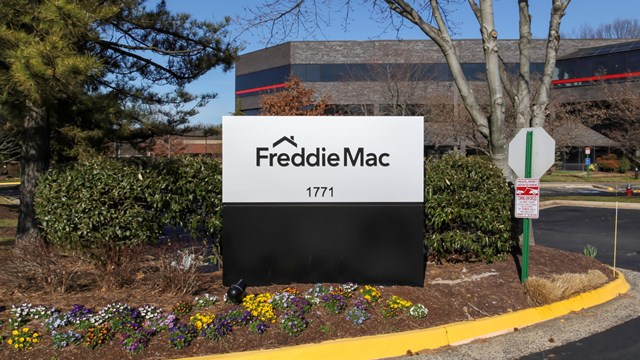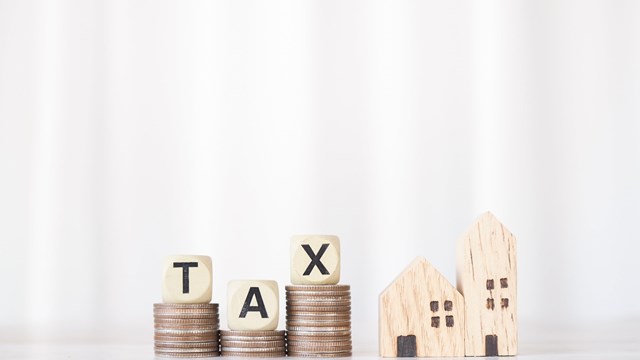Co-op shareholders and condo owners in New York City may not always agree on how the common areas
in their buildings should be managed, maintained or decorated, but they've always seen eye to eye when it comes to saving money. Everyone agrees that real estate taxes are simply too high, and that it's unfair for co-op and condo owners to be taxed at a rate four to five times higher than owners of single family homes.
Nowthanks to the diligent efforts of local reform groups like the Manhattan-based Action Committee for Reasonable Real Estate Taxesmembers of the co-op and condo community in New York City have reason to celebrate. They can expect to receive a property tax break of up to 17.5 percent over the next three years. On July 2 Governor George E. Pataki signed into law a bill aimed at providing tax abatements to owners of co-op and condo apartments in New York City.
Based on a proposal sent in June by the New York City Council to the New York State Legislature, the law designates about $198.5 million in tax abatements over the next three years to individuals who own fewer than three co-op or condo units. The law also requires city officials to file a plan with the state legislature by the end of this year for permanently eliminating the imbalance. In 1997, $8.5 million is earmarked for these abatements. That figure increases to $70 million in 1998 and to $120 million in 1999.
According to Peter Murphy, a spokesman for Governor Pataki's Division of the Budget in Albany, The Governor is committed to lower taxes and to reforming property taxes to make the system more equitable and less burdensome. Signing this tax abatement bill moves us in that direction.
A Series of Ups and Downs
We feel that this is the first step toward the overall equalization of real estate taxes in New York, says Martin Karp, chairman of the Action Committee which, since 1990, has championed a series of proposals to cut the real property tax for co-ops and condos. A healthy co-op and condo community will attract and retain the people who make major contributions to the city's economy and will help maintain the very necessary stock of affordable quality apartment housing.
The new law comes after a long series of ups and downs. In March, Karp and other tax reformists had been extremely optimistic about legislation that had been introduced at the state level. The bill, which was sponsored by Senator Roy Goodman from Manhattan and Assembly Members Pete Grannis, Steven Sanders and Jules Polonetsky, had the support of many City Council members as well as Mayor Giuliani. However, citing fiscal problems, the Mayor withdrew his support in May when he handed over his new budget to the city council. This temporary setback resulted in the City Council and the Mayor striking a compromise. The proposed abatement for fiscal 1997 was cut in half from $17 million to $8.5 million. These agreed upon figures appeared in the city's budget package for Albany, and the rest is history.
Though Karp is obviously very pleased about the victory, the new real estate tax law is not the revenue- neutral solution he and his allies have been hoping for. The Action Committee has always been in favor of redistributing the tax burden shouldered by all real estate owners including private homes, rather than l ffb owering the taxes for any particular segment of real estate owners. While the committee does think the new law is reasonable, Karp points out that the revenue-neutral approach is still the most pragmatic. We recognize that the real estate tax is the largest single revenue producer in the city. It's responsible for 25 percent of the city's total revenue.
Calculating the Abatements
Where will the money come from to cover the abatements? According to Thomas L. McMahon, director of the City Council's Finance Division, the sum is included in the city's financial plan. It was covered as part of the overall revenue projection and accounted for when the budget was put together. The tax abatements are in place now for the next three years, McMahon says. The legislation provides that by December 31, 1996 the city must submit to the state a strategy on how tax equity will be achieved after the initial three-year period. It has always been Speaker Vallone's position that this is a matter of equity that needs to be addressed, he adds. We have put in place the beginning of the process that will eliminate the inequity.
According to McMahon, the abatements would be based on the assessed value of individual units. Assessed values of co-ops and condos generally equate to about 25 percent of market value. Properties assessed at $15,000 or less would receive a two percent abatement in 1997, a 16 percent abatement in 1998 and a 25 percent abatement in 1999, he explains. Properties assessed at more than $15,000 would receive abatements of 1.38 percent, 10.75 percent and 17.5 percent in 1997, 1998 and 1999 respectively. A New York City co-op with a market value of $200,000 would typically be assessed for about $50,000. Using the current tax rate of $11,056 per $1,000 of assessed valuation, the total tax would be $5,528. Accordingly, the abatement would be $76 in 1997, $594 in 1998 and $967 in 1999. Buildings that are currently receiving 421-a or J-51 tax abatements are not eligible for the new abatement until the former abatements expire.
Still Time to File
Under the new legislation, The Commissioner of the New York City Department of Finance was given the authority to set up the ground rules for creating the filing application and other particulars of the submission process. In order to be eligible for the 1997 abatement, co-op and condo boards (not individual homeowners) must file with the City Department of Finance by October 15. The original deadline of September 16 has been extended and the requisite forms have been mailed out by the city to all co-op and condo buildings. The Department of Finance will calculate the tax abatement for fiscal 1997 which will appear as a credit on July 1997 tax bills. The filing deadline to be eligible in fiscal 1998 is March 1997.
For further information, contact the city at (212) 669-2700 or the Action Committee for Reasonable Real Estate Taxes at (212) 496-1306.n
Ms. Mosher is Associate Editor of The New York Cooperator.







Leave a Comment